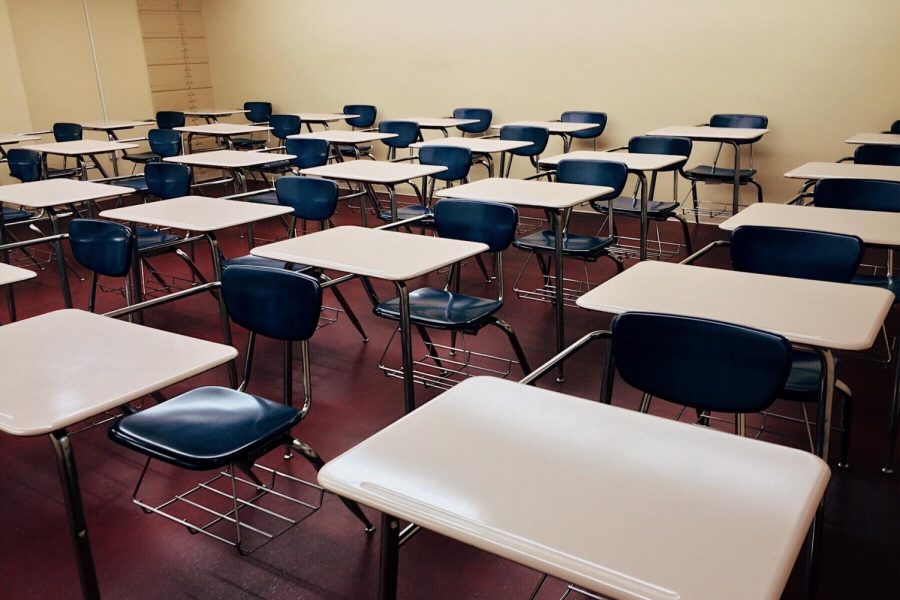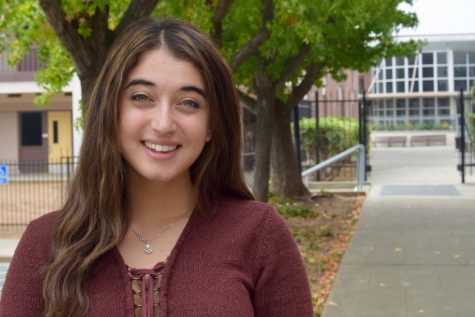Making the switch: The difference between public and private high schools
The transition from private to public school for MVHS students
December 7, 2018
For many MVHS students, the 13 years of schooling have been explicitly laid out for them. They attend an elementary school from the Cupertino Union School District, then a middle school in the same district, then MVHS. But there are always those who are forced to move because of financial obligations or the prospect of a new opportunity, such as athletics at a private high school. Others started in the private school system and transferred to a public high school. With these transitions, students often experience both different classrooms as well as social environments.
The transition for MVHS junior Kimberly Chen was apparent when she moved from a private school to a public school, in just the fourth grade.
After attending Challenger School in Palo Alto, Chen moved from her home in Sunnyvale to Cupertino. Chen’s move was primarily due to her parents’ belief that a private school simply didn’t provide the same experience a public school did. According to Chen, there were roughly 19 people in the eighth grade class at Challenger compared to over 400 at most CUSD middle schools. She says that her parents thought she would be better prepared for middle and high school if she transferred to a public elementary school.
“Even though the education [at Challenger] was pretty great, it was too much of a limiting experience,” Chen said.
On her first day of fourth grade at Lincoln Elementary School, Chen was alarmed when she was expected to sit on the carpet for an activity.
“I was like ‘What are we doing sitting on the carpet’?” Chen said. “We’re animals.”
Chen feels that the environment at Challenger emphasized self-studying and individual learning far more than it did at Lincoln. And so it came as a surprise to Chen when she discovered the more laid back environment as she entered a public school for the first time. Straying from the individual focus at private schools, Lincoln was not nearly as strict as Challenger, beyond the way students were expected to learn.
“It was a lot more [of a] fending for yourself environment,” Chen said. “Students weren’t as polite. There was a lot more rough-housing. You kind of had to stick up for yourself, which was something I never had to do.”
Similarly, junior Armond Bigler noticed a shift in the style of learning as well as the social environment when he moved from a private school to a public school. Due to discontent with the administration, Bigler’s family decided to move him from The Harker School in San Jose to Kennedy MS in seventh grade. Bigler says that at Harker, there was a deeper focus on the kids from teachers, in that more instruction was given even during “free” hours such as brunch and lunch.
In addition to having after school commitments like sports at Harker, Bigler often worked until around nine each night. With the change in schooling, however, Bigler didn’t need to spend as much time completing work, even though he had moved up to a higher grade level.
Bigler also notes that with a smaller class size of about 100 at Harker in sixth grade, he appreciated the closer-knit relationship he had with his peers and that entering a completely unfamiliar class of 400, he didn’t sense that forming such connections would be possible.
“Everyone basically knew everyone in their class’s first and last name,” Bigler said. “And then going to a public school, it was rough for me because I didn’t really know anyone.”
Chen also struggled adjusting to a new school but because of the classroom environment she was used to. With an emphasis placed on individual work, Chen feels that Challenger didn’t prepare her for the social situations she encountered at Lincoln ES.
As for classes, the Challenger curriculum had more structured time for courses that were loosely organized in public school courses, such as geography and cursive writing. Chen especially enjoyed her music classes at Challenger and notes her appreciation for the professionalism of the music teacher, a former opera singer.
Despite the benefits and drawbacks of both public schools and private schools, both Chen and Bigler admit that neither is necessarily better or worse than the other. Chen is still an avid reader, which she credits to its emphasis at Challenger but also learned to develop collaborative and social skills after her transition to a public school. Bigler feels that he learned how to be more individual as a student in a public school and that the skills he developed, such as time management, will help him better in college.
“I feel like there are aspects from both that will prepare you for college,” Bigler said. “[Harker] makes you develop study habits. It forces you to be a studious student, but MVHS and Kennedy have taught me how to survive on my own.”


















